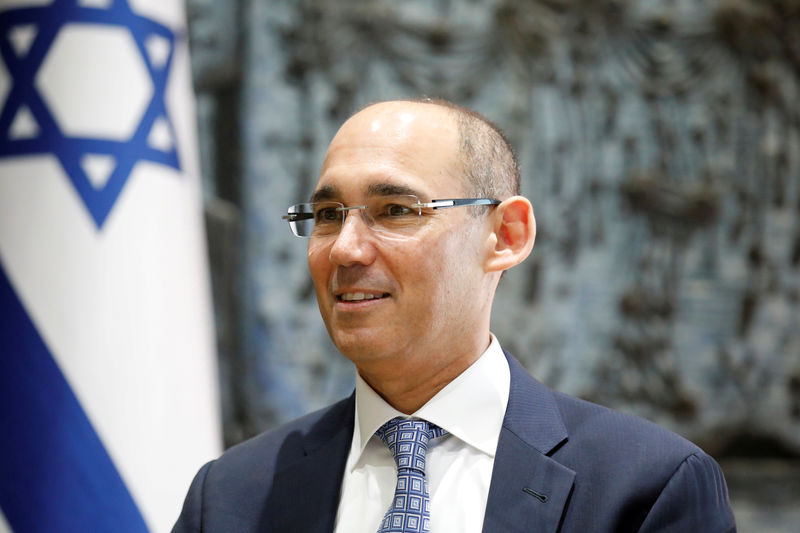By Steven Scheer
JERUSALEM (Reuters) - Amir Yaron's honeymoon as Bank of Israel governor lasted eight months.
In that time, he and the bank's policy committee have increasingly come under fire and its credibility questioned for helping to strengthen the shekel . Its 6.5% gain against the dollar this year makes it one of the world's strongest currencies.
Yaron took over at the central bank last December when Karnit Flug's five-year term ended, and just after its monetary policy committee raised rates to 0.25%. From day one, he put "normalizing" interest rates, which were close to zero, at the center of the bank's policy.
Rates have been left unchanged since then, but inflation reached an annual rate of 1.5% in May -- approaching the 2% rate at which the bank believes a rate hike would be necessary.
After a central bank meeting on July 8, Yaron held out the prospect of raising rates. At the same time, its economists maintained a projection for a quarter-point increase in the third quarter and two more in 2020 to bring the benchmark rate to 1%. But markets were dubious.
"The rates market has been pricing out hikes expectations after their hawkish guidance at the July decision," said Bank of America Merrill Lynch (NYSE:BAC) economist Mai Doan. "There is a bit of mismatch between what the central bank is saying and how the market thinks."
June's inflation rate unexpectedly dropped to 0.8%, below the government's 1% to 3% target. Further gains in the shekel to a 16-month peak versus the dollar prompted Yaron to issue a statement last week saying rates would not be raised for an "extended period."
For now, that has halted the shekel's gains. But some analysts and Israel's financial media have criticized Yaron, particularly for a lack of central bank experience and for failing to intervene in the foreign exchange market since January.
"His statement was too little too late and not particularly strong or decisive," said a former senior Bank of Israel official. "It's especially damaging to be losing credibility when you don't have a lot of other tools available to deal with any potential crisis. They are reactive instead of being proactive."
CENTRAL BANK DISAGREES
Ori Greenfeld, chief economist at the Psagot brokerage, said Yaron's statement was two months too late.
"If the Fed is talking about cutting rates and the ECB is starting a new round of QE (quantitative easing) you can't say you are going to hike rates," he said. "It's not a credibility issue but a policy mistake."
The bank's policymakers disagree. Moshe Hazan, a voting member of the policy committee, said Israel's inflationary and economic landscape on July 8 had pointed to a possible rate hike in 2019.
"We thought that in this environment it was important to tell the market that an interest rate hike at the time was on the table," Hazan told Reuters. Economic activity was still robust and some small, open economies like Norway were also tightening, he said.
"One more (inflation) surprise on the upside, we might have been getting closer to the middle of the target and obviously an interest rate hike would not have been super surprising.
"Some market participants didn't understand that our decisions depend on the data we see as it comes," Hazan said.
Analysts believe the shekel has more room to gain. Israel's economic growth exceeds 3%, the labor market is tight and its current account surplus should improve soon, when Israel turns into a natural gas exporter.
"You have the fundamentals, the Bank of Israel which is sitting on its hands and other central bankers cutting," said Leader Capital Markets Chief Economist Jonathan Katz.
Although exporters are unhappy with the shekel's strength, which makes their products more expensive, analysts are split as to whether intervention is warranted, since intervention rarely works. The bank has bought $90 billion of foreign exchange the past 11 years.

"I completely disagree that we are not concerned abut the shekel's exchange rate," Hazan said. "If we believe the shekel is out of the range we have in mind, the central bank will intervene."